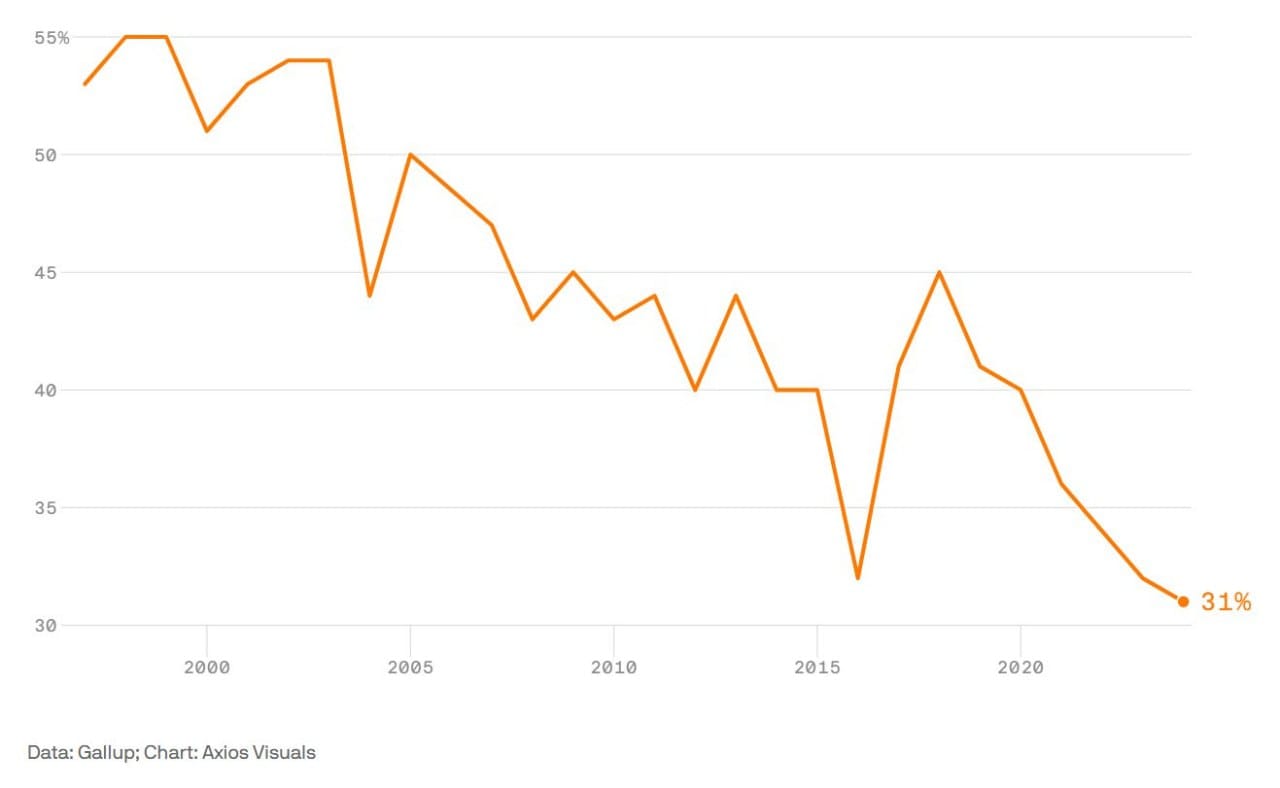Gallup Survey Reveals Historic Low in U.S. Media Trust, Reflecting Deep Partisan Divide
In a stark reflection of the ongoing polarization within the United States, a recent Gallup survey has highlighted that trust in the mass media has plummeted to an all-time low. Released on October 15, 2024, the survey underscores a significant erosion of public confidence in media institutions, with only 32%
In a stark reflection of the ongoing polarization within the United States, a recent Gallup survey has highlighted that trust in the mass media has plummeted to an all-time low. Released on October 15, 2024, the survey underscores a significant erosion of public confidence in media institutions, with only 32% of Americans expressing a great deal or fair amount of trust in mass media, marking this as the lowest trust recorded since Gallup began tracking this metric.

The survey reveals a deeply divided landscape:
- Partisan Divide: The data indicates a profound gap in trust along party lines. Democrats continue to exhibit higher trust in media, with 70% expressing confidence, compared to just 14% of Republicans. Independents fall in the middle but are notably skeptical, with only 27% trusting the media.
- Historic Context: Trust in media had shown signs of recovery post-2016 but has since declined, erasing those gains. This decline coincides with an increase in political partisanship, suggesting that media is increasingly perceived through a political lens.
- Media's Role in Society: Traditionally, media acts as a watchdog and an informant in democratic societies. However, the current lack of trust poses challenges for media's role in informing the public and holding power to account.
- Implications for Democracy: The erosion of media trust could lead to further fragmentation of information sources, where individuals consume news from increasingly polarized outlets, potentially deepening societal divides.
The findings come at a time when misinformation and "fake news" have become central themes in public discourse, often fueled by political leaders and social media. The term "fake news" itself has been wielded as a weapon against critical journalism, further complicating the relationship between the media and the public.
This survey not only reflects on the media's integrity but also on the broader implications for democracy, where an informed electorate is crucial. The question now looms larger: how can media rebuild trust across the political spectrum, and what role should it play in an era where information warfare is as prevalent as physical conflicts?
Gallup's survey not only serves as a wake-up call for the media industry to introspect on its practices but also for policymakers to consider how trust in information sources can be restored to strengthen democratic processes. As the U.S. continues to navigate through politically charged times, the role of media in bridging divides or deepening them might just be the pivotal issue of our time.




